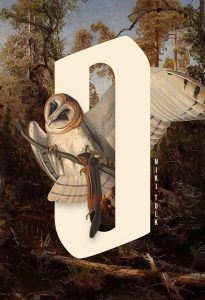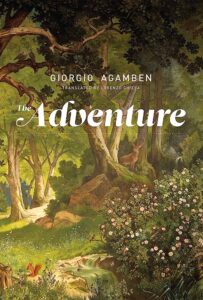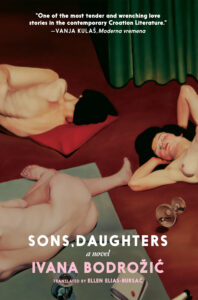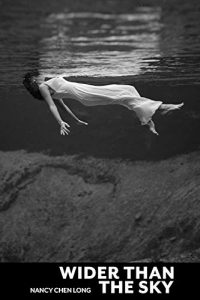Poetry. 94 pgs. Driftwood. July 2022.
Poetry is dangerous. It disrupts the order of things and burrows under society’s collective skin, an itch it can’t scratch without removing the wound entirely. Niki Tulk’s O is a collection of dangerous poetry full of admonishment and vulnerability. Throughout O, Tulk, a multi-modal performance artist, blends mythologies, images, and characters and invites readers to wade into difficult questions and painful complexities.
The collection is rooted in Tulk’s experience and her previous work with Hamlet’s Ophelia, turning the character over and over until the reader is left navigating themes of gendered violence, intergenerational trauma, guilt, anger, and what it means to be a mother and daughter, sometimes simultaneously.
The opening poem, The Many Faces of O, foreshadows the themes to come and explores the various meanings of “O.” O may be understood as Ophelia, but it can also represent silence, emptiness, eyes, or even a womb. The final two lines of the poem usher the reader into the collection:
“a primitive word at the threshold of speech
an infinity of nothings is nothing, and also infinity.”
It’s as if Tulk admits that writing of trauma means nothing, but it also means everything. This courageous nuance carries throughout O and is what makes it such a timely book.
Tulk’s original fable bookends the collection, making up sections one and four. This rich story is full of parallelism and simple punctuation, leaving some of the pacing and meaning-making up to the reader. It tells of a weary traveler-turned-owl who marries a baker. The owl soon becomes pregnant and the section’s final poem describes their daughter’s birth.
“The girl had two mouths and ten
feathers. The feathers were hope and bone and dissent,
tremor on her shoulders. The owl mother left for a time,
to wash herself in the sea. From the waves, she heard
the mouths of her daughter, singing.”
This is a daughter full of life, hope, and wanting, and a wild mother who, even in her distance, is connected to her child.
Section two, entitled “Big O,” explores the mother figure as wounded, traumatized, angry, and in many ways, still a daughter herself. In this section, the references to Ophelia are most direct, largely in the use of flower imagery and the figure of Gertrude, a “false mother” to Ophelia. Here, the line between mother and daughter blends until they are the same, as seen in the first and last poems of the section. Using similar syntax structures, these pieces expand the meaning and culpability of O as mother and daughter. One excerpt reads:
“O’s mother closed her eyes when they
should have been opened. O’s mother had no eyes. O’s mother
did not deserve eyes…
O’s mother was
a daughter. O was a mother who had no daughter. O waits.
O waits in a womb. O wants a womb to wait in.”
Themes of guilt, re-wombing, and searching ripple throughout the collection, as if both mother and daughter are circling one another, separated by their traumas yet fighting their way back to themselves and to each other.
The reader is then ushered into section three, entitled “little o” This section pulls the reader close to the daughter’s (little o’s) own traumatic assault, a trauma that extends to and re-traumatizes Big O.
The reader feels Big O’s grief as she tells of the investigators’ conclusion regarding little o’s rape.
“She made it up. She is an intelligent, creative girl, and
apparently, that is what such girls do.”
Many who read this will be unsurprised, yet deeply enraged by little o’s story and her treatment. They will yell with Big O as she calls for ammunition to use in her fight against the systems that don’t believe her daughter, and resonate with her when she writes:
“When he raped my daugter he took
us both.
I intend to get us back.“
But getting both back requires Big O to lean into her power and her helplessness as a mother. In section three, we see Big O is tougher than she thinks and is a stronger advocate for little o than she ever had for herself. She doesn’t have the answers and can’t compel justice, but she still beckons to her daughter,
“my little o, come here where the moss and mushrooms grow.
I will pretend I can rock us to sleep.”
We even see Big O’s vitality and intention in the use of space. In sections two and three space becomes its own kind of character. While the fable sections are written in tight knit, fairy-tale-like, prose poems, in sections two and three fissures of white space begin to open. In Big O, we see a mother wrestling to grasp her own trauma as some of the spacing feels unpredictable and desperate. However, in section three the space is used with more restraint alluding to an attempt of the speaker to control or hone. The effect is an embodied stability necessary for both her and her daughter to move through trauma. Though gaps and wounds will still remain, the re-membering continues.
In section four, we are back into the story of the owl’s daughter, now a growing child wrestling with her differences and enduring abuse from villagers. Her isolation and despair are compounded by her now distant owl mother, who no longer visits her. Though the fable is powerful in its own right, the stories of Big and little o provide a new lens and add complexity, nuance, and insight to this narrative.
The many facets of O, from its varied sections, characters, and themes, could easily get muddied, but somehow they don’t. Everything works together in beautiful balance; the myth and memory supporting one another. Overall, this dangerous debut collection reminds us that even when our singing turns to sobbing and our joy to rage, we are still connected and that alone is powerful. Tulk and her poems refuse to be silenced and are proof that growing around our wounds can be just as creative as it is resilient.
O is available through Driftwood Press. Purchase it now through their website.
CHELSEA JACKSON is a writer, editor, and consultant whose work asks hard questions and explores what it means to be human. Their poetry is published in Passengers Journal, Fatal Flaw Literary Magazine, Coffin Bell Journal, and Beyond Queer Words, among other publications. They were also a finalist in the 2020 Driftwood Press In-House Poetry Contest and the 2022 Animal Heart Poetry Collection Contest. Chelsea has an MFA in Poetry from Drew University and is the Managing Editor of The Maine Review. They live in Richmond, Virginia with their partner and cuddly pit bull. You can find them on Twitter and Instagram @sea_c_j or on their website at chelsea-jackson.com.
Like what you’re reading?
Get new stories or poetry sent to your inbox. Drop your email below to start >>>
OR grab a print issue
Stories, poems and essays in a beautifully designed magazine you can hold in your hands.
GO TO ISSUESNEW book release
Ghosts Caught on Film by Barrett Bowlin. Order the book of which Dan Chaon calls “a thrilling first collection that marks a beginning for a major talent.”
GET THE BOOK



